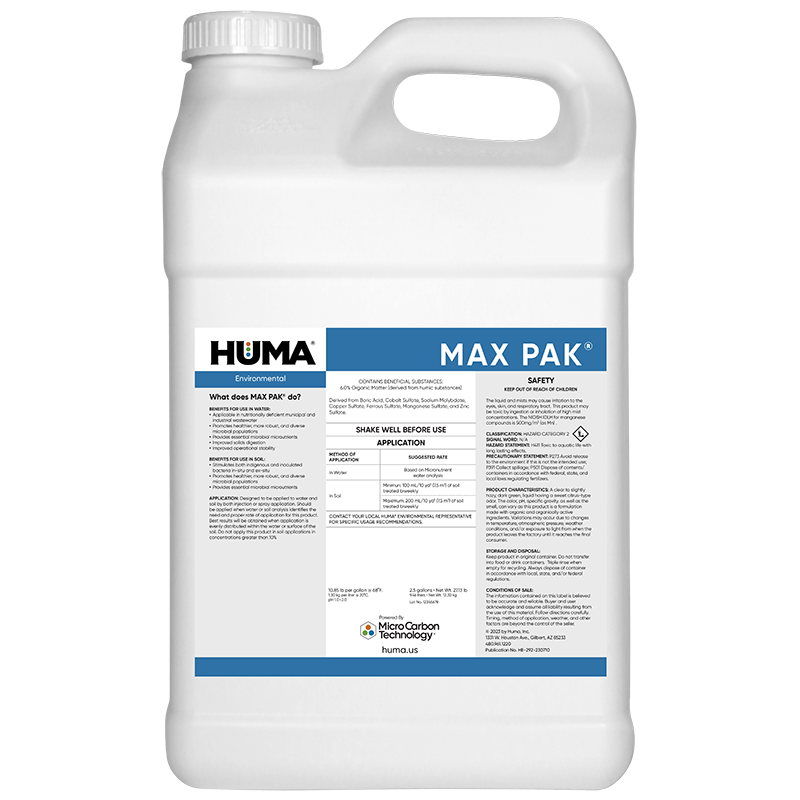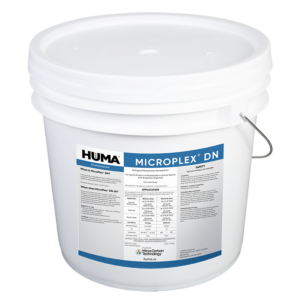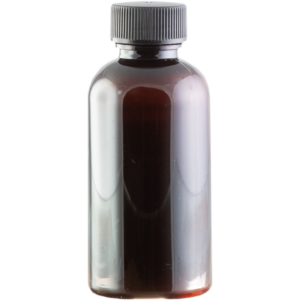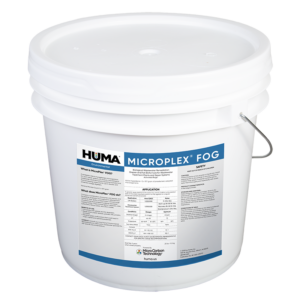Max Pak® (HE)
Benefits of Use:
- Stimulates both indigenous and inoculated bacteria in-situ and ex-situ
- Promotes healthier, more robust, and diverse microbial populations
- Provides essential microbial micronutrients
Benefits of Use in Water:
- Applicable in nutritionally deficient municipal and industrial wastewater
- Promotes healthier, more robust, and diverse microbial populations
- Provides essential microbial micronutrients
- Improved solids digestion
- Improved operational stability
FAQs
Related Videos
Related Products
Related Case Studies

Super Phos® Lowers Papermill Operating Costs in China
Problem The existing wastewater treatment system uses 600 kg/day of diammonium phosphate (DAP) to provide the needed phosphorus concentration to maintain a healthy microbial population to treat wastewater. These microorganisms break down the organic matter being discharged from the paper processing facility. Without the correct concentration of available phosphorus, the microorganisms are unable to grow...

Bio Energizer® Toxicity Testing
Abstract Bio Energizer® is frequently used to facilitate bioremediation of wastewater. A study was conducted by an independent laboratory to measure possible negative effects Bio Energizer® might have on a freshwater test species (rainbow trout). Using EPA-approved methodology to evaluate Bio Energizer®, the lab administered the product at 10 ppm to a test tank and...

Lagoon Study Shows Sludge Layer Biologically Active and Responsive to Reduction Using Bio Energizer®
Summary In this study, a one-year bioremediation plan was implemented for a municipal wastewater treatment facility with 2 primary lagoons that were at risk of upset and in which wastewater processing capacity was reduced due to an increased sludge layer. Specific changes in strata microbial life were tracked through ATP and DNA analysis at quarterly...
Related Blog Posts

A Powerful and Proven Strategy to Cut Wastwater Treatment Costs
Using our proprietary Micro Carbon Technology®, Probiotic Solutions® product BIO ENERGIZER® efficiently reduces sludge, odor, BOD, COD, and FOG’s. It’s a scientific formulation of organic acids, buffers, and nutrients designed to stimulate natural biological ecosystems that increase biooxidation of sludge in wastewater treatment plants, lagoons, and ponds. It also reduces grease and solids accumulation problems...

Micro Carbon Technology® for a Greener, Cleaner World
Probiotic Solutions® products are manufactured with our exclusive, proprietary Micro Carbon Technology® that consists of very small carbon-rich molecules. These ultra-fine molecules help efficiently reduce biosolids, improve settleability and promote dissolved oxygen.

BHN Sponsors Online Course on Sustainable Organic Agriculture Production
To help increase awareness about sustainable agriculture production, Bio Huma Netics, Inc., (BHN) is sponsoring a FarmProgress course for Certified Crop Advisers (CCAs) and Pest Control Advisers (PCAs) in the United States and Canada. This free online continuing education course, titled “Organic/Sustainable Agriculture Production -2022” aims to help working professionals learn about sustainable farming practices...






